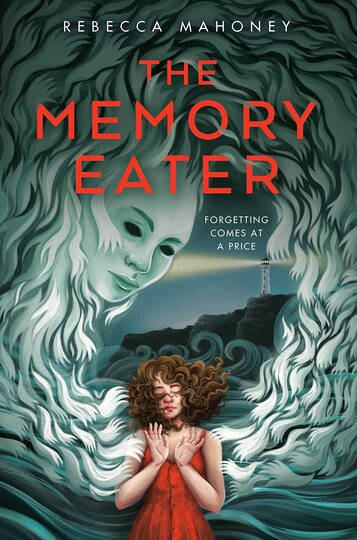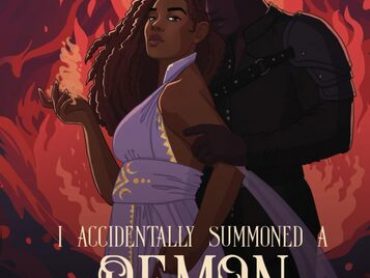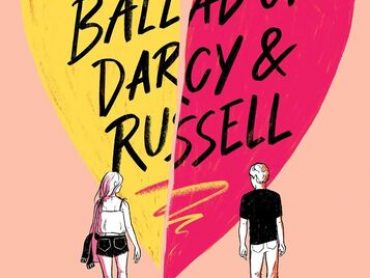Rebecca Mahoney is the author of The Memory Eater. The Memory Eater follows seventeen-year-old Alana Harlow who inherits the family business after her grandmother dies. The novel explores magic, grief, and coming of age. YEM was able to speak with Rebecca about the writing process, writing about monsters, and writing for young adults.
Young Entertainment Mag: When did you first know that you wanted to be an author?
Rebecca Mahoney: Ooh, being an author was definitely something I wanted from so early on – I wrote my first ‘book’ by dictating it to my mom when I was three! I think the part that was a bit more gradual was the realization that I could be an author, I started writing multi-chapter stories when I was about eighteen, but in my mind, they were definitely practice stories, and I never thought of submitting them anywhere (which is probably for the best! I do want to revisit some of those ideas some day, but they definitely weren’t ready back then.)
So when I was in my senior year of college and I started writing the first idea that I knew I was confident enough in to submit to agents, it was like a lightning bolt. Suddenly this thing I’d been daydreaming about for years felt possible and doable. That story didn’t end up going anywhere, but it introduced me to some of the people who really shaped my idea of storytelling, so I’m extremely grateful for that manuscript.
YEM: Where did the inspiration for The Memory Eater come from?
Rebecca: The Memory Eater was a bit of a melding of a few longstanding ideas I wanted to write. I think the initial kernel was that I wanted to write a story of a teenager who was responsible for the prosperity and emotional well-being of her town: I thought it would be such an interesting speculative way to look at a character who had been shaped by feeling responsible for the adults around her at such a young age, and to have that character slowly confronted by the idea that she still deserves to have a childhood.
In terms of the memory aspect, that came along a bit more slowly. As someone who is extremely familiar with that late-night routine of dwelling on every embarrassing thing you’ve ever said or done, the idea that you could just zap something out of your own head was pretty appealing to me on paper. I think where the story really started coming together was when I started to think of the ways that could go horribly wrong: maybe there were important parts of your personality that were shaped by that moment, or maybe by forgetting that pain, we leave it unresolved, or we leave it for someone else to carry. And once I decided that it would be a monster story, everything just clicked into place.
YEM: Did you take anything from your real life and incorporate it into The Memory Eater?
Rebecca: Generally if I take something from my life, nine times out of ten I’ll remix it a bit before I put it on the page. Like a lot of writers, my family and friends (and coworkers!) ask me a lot if they’re going to end up in one of my books, but I try to look at general personality quirks and character traits I observe in people rather than basing directly off of people in my life. (So don’t worry, coworkers!)
That said, The Memory Eater is a bit closer to home for me than some of my other works as someone who grew up in New England and visited Maine regularly throughout my childhood. The kind of seaside tourist towns that inspired Whistler Beach were, and remain, my happy place, so it was fun to put a darker spin on an atmosphere I love so much. Whistler Beach is a bit of a combination of a few towns: it has the general look and coastline of York Beach, the boardwalk of Old Orchard Beach, and the funky queer arts scene of Ogunquit.
YEM: What was the writing process like?
Rebecca: The Memory Eater was the first book I ever wrote on a deadline, so in a lot of ways, writing it meant re-learning how to write a book. Generally I make a few different attempts at the beginning before I decide what I want the tone and voice to be, and once I know, I go back and rewrite from the beginning so that everything has momentum and feels more or less smooth. Without the time to do that, I had to really put my self-editing impulse in check and charge ahead with my initial synopsis, trusting that I would keep developing the story as I moved it forward. It felt as if I reverse-engineered some of the finer emotional arcs as I went, which felt somewhat backwards at first, but once I finally got to the finish line of the first draft and was able to start revising, I realized that the pieces were all there, and I just needed to connect them. It was a bit scary, but it was a great way to unlearn some of my own perfectionism!
YEM: Why did you decide to write about a monster?
Rebecca: I think genre fiction, and horror in particular, is such a perfect way to explore emotions that feel too big and too all-encompassing to describe in a straightforward way. And in particular, what I really like to dig into is the way that grief and trauma sets your ‘rational’ self in opposition to parts of yourself that are more difficult to understand: parts of yourself that may scare you, or may seem to speak a completely different language. Monster fiction, to me, feels like such a perfect way to explore that disconnect, and to write that kind of clumsy, at times scary journey toward a common understanding. And while the Memory Eater is a bit better at communicating than some of the other monsters I’ve written, there’s still quite a lot she’s hiding.
YEM: How long did it take you to write your book?
Rebecca: I sold the book on a three-chapter proposal in March 2021, and once I got some initial notes from my fabulous editor Gretchen, I started writing the rest in late April and turned the first draft in just before Thanksgiving. The revision process started pretty quickly after that, and I think we had the final draft by April 2022. I’m not a particularly fast drafter, so that’s easily the quickest I’ve ever turned a book around!
YEM: What is some advice you have for someone who wants to be an author one day?
Rebecca: I only know what I’d tell myself, which I’d like to think would be applicable to others, too! But my advice would be: it might take longer than you think, you might not get everything you’re looking for, and your worst-case scenarios might come to pass. But nothing is wasted. The words you write but don’t get published will inform future words. Every rejection is a chance that someone remembers a spark of something that intrigued them when you send your next project. And every time you don’t click with an agent or editor or critique partner, it’s not a reflection on you. It’s just data.
It’s not always going to be easy. But surround yourself with people who are honest with you, who you can be honest with in return, and as long as you love it, keep going. One day, your story is going to find someone who needs it.
YEM: What do you hope your readers take away from reading your book The Memory Eater?
Rebecca: For all that I love delving into the scary stuff, I always want the narrative to be gentle on my characters and their mistakes in the hopes that readers might reserve a little of that gentleness for themselves. And with The Memory Eater, I’d particularly love it if a teen (or adult!) reader was able to recognize their own sense of responsibility in Alana–and maybe even forgive themselves a little for not performing perfectly under the unfair expectations set by the adults around them.
And more generally, I hope my readers are intrigued by the questions I tried to ask with The Memory Eater: whether shedding unhappy memories is worth it, whether we’d be the same people without those memories, and if without the memory of our worst mistakes, we’d just make those same mistakes again. I think those are such interesting questions to ask of yourselves, whether or not you agree with the conclusions Alana and the others came to.
YEM: What is your favorite part about writing for young adults?
Rebecca: I love writing YA because I think that ideally, coming-of-age is a continuous process. And the parts of coming-of-age that are so central and vital and constantly evolving are the parts that I want to center in my books: the parts where you learn and unlearn things about yourselves as you develop your own agency, the parts where you have to sort through hard, conflicting information that changes your view of the world, and the parts where you decide how you, yourself, are going to use your newfound agency to confront that new information. It’s so exciting to be able to write a character at the exact moment when they can finally figure out–or at least, make a good guess–at their own place in the world.
YEM: Which sentence or quote is your favorite from your book?
Rebecca: “I have been monstrous for a long time now.” I won’t spoil the speaker or the context, but I was particularly happy once I finally got this particular scene right.
YEM: Which book made you fall in love with literature?
Rebecca: So many more than I can name, but falling in love with Dianna Wynne Jones’s catalogue was what really catapulted me into thinking of writing as craft: she had such beautiful, playful turns of phrase, and her books were so clever and sharp and heartfelt. Despite the fact that my writing isn’t much like hers at all, I consider her a major influence just for teaching me so much about what books can be.
YEM: Do you have any books coming out in the future?
Rebecca: Nothing I can talk about yet, but I’m hard at work! Everything I’ve got in the oven right now leans a bit more in the horror direction than I’ve tackled so far, so I’m particularly excited to get a little scarier…




